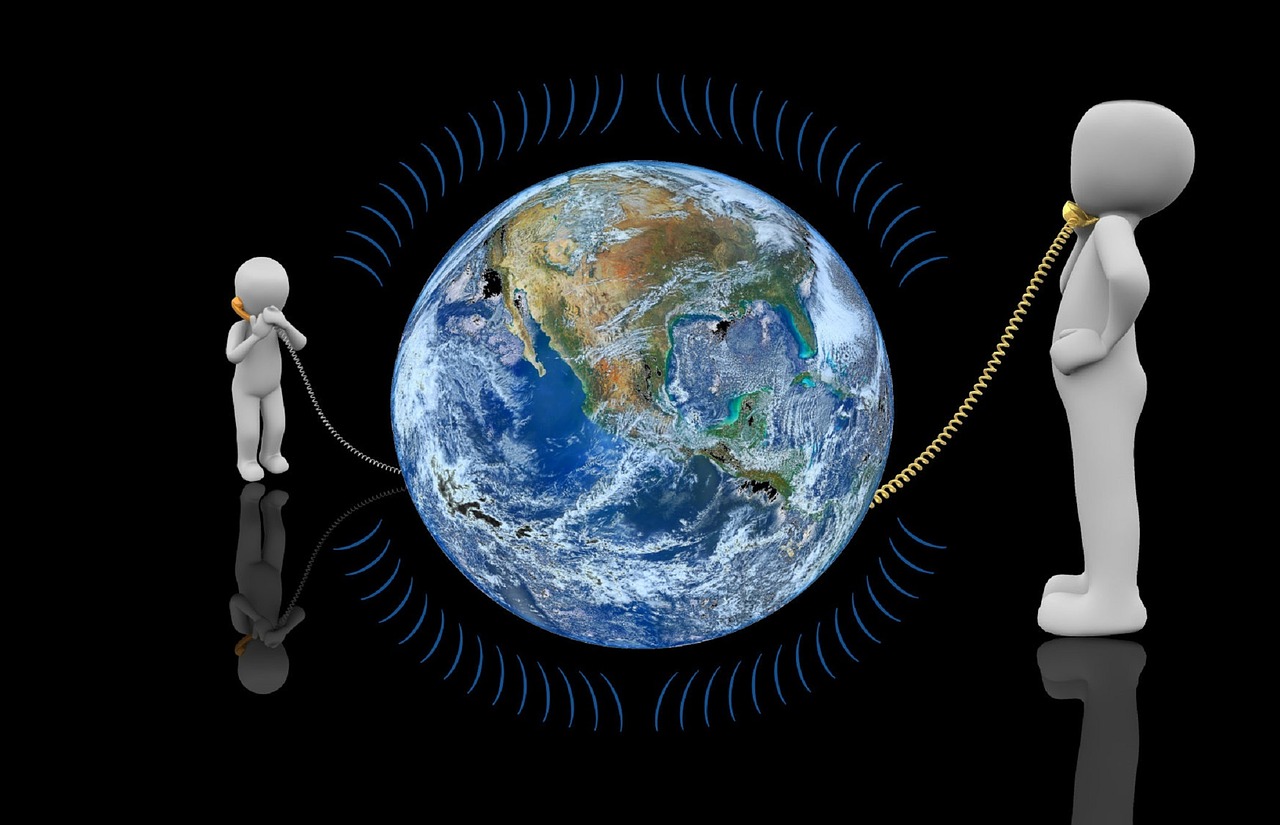A regular posting of witticisms, aphorisms, and general musings by Clifford Cohen.
Testing friendships…

Test your friendships.
Back Story
Who are your friends…and how do you tell? The answer: by testing them from time to time. In saying this I am not suggesting that you should create an artificial situation or request, and then challenge your friends to see who “performs” as expected. Rather, I am referring to a situation in which you need something (emotional support, a favor), and you would like to ask a particular friend to help you. If you are reticent to ask that person’s help because you are afraid that they might consider it an imposition, or because you are concerned it might somehow endanger the relationship, consider testing the friendship by making the request despite your apprehension. If your friend accommodates your request, this tells you that you matter to them. If your friend refuses your request with good reason, this is acceptable—provided that it does not become a pattern with future requests. If they refuse without good reason, you have an acquaintance (at best)—not a friend.
There is nothing wrong with having acquaintances, but it is always better to be clear-eyed about who your friends are and who your acquaintances are. Why? Because if you are unsure about who is who, you are likely to eventually find yourself with only acquaintances. Developing friendships means occasionally making sacrifices for your friends—and them making sacrifices for you—all within reason. Sure, you will need to protect yourself against that type of friend who attempts to take advantage of you. If you see things going in this direction, challenge your friendship with such a person by refusing to accommodate their requests.
I have noticed that many people speak freely about the number and quality of friends they have (strangely, this often seems to occur when a person is referring to the “important people” they count among their friends). However, the human animal is not wired to have a large number of close friends—the emotional and intellectual capacities just aren’t there for this to happen. If you have five people in the world who are true friends you are lucky. So, test your friendships—judiciously, sincerely, and courageously—when the situation calls for it. In approaching a friend for help, their stature or obligations should be of little importance. In a certain sense, you are doing them a favor, for how would they ever develop friends of their own if they aren’t given a chance to respond to such requests?
Living a lie…

Live or die, but don’t live a lie.
Back Story
This is an easy one to misinterpret. Living a lie is not always the same as lying. There are circumstances in which lying is a moral obligation. In WWII, in Nazi occupied territories, Jews were often faced with the choice of either lying about their identities or risking being murdered. A decision to lie was supported by the importance placed on preserving a human life. On the other hand, living a lie entails the acceptance of a lie as being intrinsically “right”, such that the lie justifies certain behaviors and becomes a part of a person’s permanent identity. The above distinction between living a lie and lying is critical, insofar as a person can emerge whole from an “acceptable” lie when circumstances permit them to once again assert their true self, whereas a person who has integrated a lie into the very core of their being has little hope of such redemption—ever. So, do not convince yourself that you agree with something that your conscience tells you is wrong. Do not deny your feelings or convictions just because society has repudiated who you are or what you believe. Assert who you are as long as you can…and then when such action becomes futile or dangerous, make a conscious decision whether to continue the fight or to live to fight another day. Either decision is valid. But if you choose the latter, don’t find refuge in mindless conformity. Instead, tell a lie—but never believe that lie—and wait patiently for better times.
Apparently, there were 140…

Please see back story.
Back Story
Well, I’ve exhausted my initial store of aphorisms and witticisms that I had created over the years. For the last few months, I’ve been posting one each work day, but alas there are no more…for the moment. Going forward, I will post items as they occur to me—which may be quite infrequently. Thanks to all of you for reading and commenting on the posts. It was great fun for me and I benefited from your wise observations. I hope you enjoyed reading them, too.
Who you were meant to be…

Anyone can do anything at all…if they do it badly.
Back Story
The next time someone tells you that you can do anything you want, or be anyone you want to be, consider such proclamations with some amount of skepticism. Of course, anyone can try most things, but have they really earned “bragging rights” if they haven’t done those things with some degree of skill? Anyone can imagine that they can be like someone else, but in the absence of the particular qualities that make the other person who they are, can anyone else truly achieve such an aim? Of course, sometimes we need to try something out to determine if we have an aptitude for it. This is fine—as long as we are honest with ourselves about our abilities once our prospects become clear. In such situations, there is nothing wrong with consciously deciding to engage in an activity for enjoyment alone—without expectation of accolades. When self-assessment is more difficult for us, we are haunted by the fact that there have been many great artists who have persevered in their work despite negative feedback and/or repeated rejection. Such artists weathered criticism and ostracization until their talents were finally recognized (sometimes, acknowledgement did not occur until after their deaths). We ask ourselves whether we should abandon our dreams given the examples of these artists’ lives and their ultimate vindications. How can we know if we are, or aren’t, one of these types of individuals? In short, we can’t know for certain. Nevertheless, here is a good way to escape this quandary (and it is somewhat unintuitive): ask yourself in any situation if what you are doing is imperative because of the benefit to you, or the benefit to others (be honest with yourself about this). If the latter is primarily true, keep doing it. If the former is primarily true, assess whether you should keep doing it.
Fatalism…

Adopting a fatalistic attitude is the surest way to shorten your stay on this earth.
Back Story
There is some comfort in embracing the prospect of death. Acceptance of death may seem preferable to dread of it. However, structuring your life based upon a philosophy that incurring risk is justified because you are going to “die anyway” is a miscalculation. The essence of the miscalculation can be found in a flawed view of the importance of time. The outcome of something does not define the value of something. Because our lives are finite does not mean that our lives are cheapened or made less significant by that fact. If anything, the time we are allotted is made more profound and valuable by that fact. To adopt a fatalistic attitude negates that reality. Every instant we have on this earth is precious—and the special nature of each instant is not dependent upon how many instants we have in sum. While one can take measured risks, the decision to do so should never be rooted in a fundamental disrespect for the importance of the gifts we have been given. Those who disdain the time they have been allotted will inevitably take risks they shouldn’t take, seek thrills they shouldn’t seek, and reap consequences they should never have reaped. If you find yourself thinking fatalistically, consider the implications for your life, for your loved ones, and for your legacy on this earth. If you are attracted to dangerous pursuits, find a positive reason for doing them. At least this way you will approach the danger with a different mindset, and you just might increase your chances of surviving the experience.
Manipulation and fate…

Being able to manipulate others is not the same as having control over your own fate.
Back Story
There are a thousand ways to manipulate people: through deceit, guile, charm, charisma, personal power, etc. Because manipulation of others appears to result in immediate gain (i.e., one gets what one wants from the person being manipulated), we convince ourselves that manipulation is an indispensable tool in engineering our own fate and fortunes. Nothing could be further from the truth. When we resort to manipulating others for our own purposes, that is our first clue that what we are trying to achieve is misguided and in conflict with a better path. A beautiful illustration of this can be found in the film, Eyes Wide Shut. This film was panned by some critics when it was released, but I assert that the film was, in fact, a masterpiece. The main character of the film is depicted as someone who is not above using his physical attributes to manipulate others to do his will. One such example is expressed in a scene, in which the character is able to initiate an extramarital sexual liaison with a woman who, despite misgivings, agrees to the encounter because she is smitten by his good looks. In the end, this turns out to be a disastrous decision when he learns that he has contracted a deadly disease from the woman. This aphorism reminds us all that because we are flawed beings, our perceptions of what our fates should be is also flawed; and therefore we would do well to remember that in the absence of truly knowing what our fates should be, our only guide for behaving appropriately in this world is the knowledge that our interactions with others must be based in shared dignity. Manipulation of others is the antithesis of this. At least to some extent, our fates will always surprise us regardless of what we say or do.
Better one than the other…

It is better to be poor and ignored than rich and tolerated.
Back Story
😉
Hands off the wheel…

Take your hands off the wheel.
Back Story
There was a point in my life when I wanted to be a pilot, so I took flying lessons. One of the key lessons I learned was that a common cause of accidents in small planes is when the pilot, faced with a dangerous situation, tries to correct the problem through employing extraordinary measures. This results in over-correction, which in turn leads to disaster. It turns out that some small planes are designed to naturally (aerodynamically) regain a state of equilibrium by themselves, and that in many situations the pilot need not attempt to correct a problem at all, but would be best served by taking their hands off the wheel, so that the plane itself can recover as it was designed to do. Knowing when to act and when not to act when confronted with an emergency is a tough call, but an experienced pilot knows that there are times when trying to make things better will only make matters worse.
Of course, we are not only talking here about flying lessons or piloting aircraft. We are talking about life. Are you grappling with an issue that seems to defy correction/resolution? If so, might it be a case of needing to “take your hands off the wheel” and waiting to see if the system resolves itself based on its own internal dynamics? Are you possibly courting disaster because you believe more in your own efficacy to address a situation than in the ability of either another person, or even a machine, to do the same—perhaps in a more meaningful and lasting way? In the end, when you are faced with any dire challenge, only you can decide how to meet the challenge…but for goodness sake, at least ask yourself whether the best course of action might be to “take your hands off the wheel” and let the problem resolve itself for you.
The importance of courtesy…

Courtesy before concepts.
Back Story
Always prioritize people—and your treatment of them—over ideas, concepts, and conventions. All man-made concepts are…well…man-made, but the requirement to treat your neighbor with respect is divinely enjoined upon us. I once remember reading an observation by an advice columnist (I think it was Esther Lederer (“Ann Landers”) or Pauline Esther Phillips (“Dear Abby”)—not sure which one), who stated (I am paraphrasing) that the lack of courtesy in this world is a serious and fundamental problem that lurks behind much graver offences that people commit against other people. At the time I read this observation, I thought that it was a rather vacuous assertion – after all, how could something as simple as discourtesy play a role in the myriad and terrible things people do to each other? However, with time, I have come to agree wholeheartedly with the sentiment expressed: discourtesy is all too often either the precursor or the cause of much suffering in the world. The purpose of this aphorism is to remind a person that if they are engaging in discourtesy, they are playing with fire…that seemingly small affronts can have profound consequences. By avoiding discourtesy, it is possible to prevent much greater insult and conflict.
Note: I read (what I remember to be) the advice column in the late 1960’s or early 1970’s. Due to the significant time elapsed since I read this, I have not yet been able to determine which advice column it might have been. Therefore, I will give tentative recognition to either Ann Landers or Dear Abby for sensitizing me to this issue.
Idiots and geniuses…

When you are an idiot, all the world seems a genius.
Back Story
People often are overawed by phenomena that they don’t understand. While it is prudent to respect a mystery, the opacity of something is not synonymous with its intrinsic worth. The problem with overawe is that it instills in us a belief that something is unattainable, and this can discourage inquiry and deeper understanding. A healthy dose of measured skepticism is always in order when confronting the “incomprehensibility” of something. Ask yourself whether (and to what extent) the likely cause of your confusion is rooted in a lesser state of knowledge and/or innate abilities in yourself, or in the evolved characteristics of the thing under consideration. If you determine the latter (or both) is/are true, sit back and enjoy the encounter…at least they can’t take that away from you.
